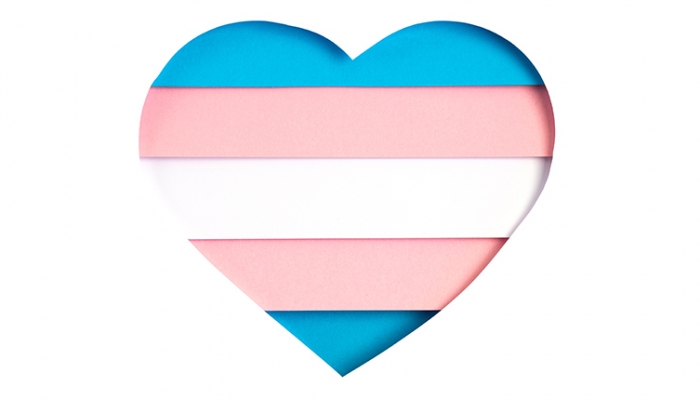‘This is where we all can make a discernable difference’ – accessmatters with Cassius Naylor, Proud FT
While the UK PR, comms and media industries are making efforts to improve on inclusivity, one marginalised group in particular is the focus for Cassius Naylor in his work as chair of the Financial Times employee network Proud FT. Empowerment, support and protection of transgender and nonbinary people working within the FT structure, and fair representation of the community in the press, is a passion for Cassius, who shared his experiences and advice in our latest accessmatters session.
Watch the full accessmatters session with Cassius Naylor here.
Proud FT is working to lead the way and model how the UK media should be supporting transgender and nonbinary people. As Cassius highlighted during the session, the reporting of transgender and nonbinary-related issues in the mainstream UK press right now needs to change, very drastically and very quickly.
‘This community is the most at-risk and marginalised, yet we’ve all seen how trans issues are being reported in the UK right now.’
Those who work with the media can make a difference – especially those who engage with the public to drive opinion and tell stories. What can the PR industry do to fight transphobia and better represent transgender and nonbinary people?
The inclusion of pronoun information on social media is particularly popular among Generation Z – ‘Gen Z are getting queerer and more liberal because they’re plugged into others’ experiences. Culturally, with my younger brother, for example – it’s like he’s from a different planet. He came out at the age of 15 – if I had, I wouldn’t have got through school’. Pronouns frequently receive scoffing comments on social media platforms. Is pronoun information on social media useful and worth adding?
‘Absolutely,’ says Cassius.
‘We need to engender a place where pronouns are as normalised as sharing names. “Not seeing gender” is not helping to dismantle structural transphobia. It’s like those who say “I don’t see race” – that’s not helpful, at all’.
‘I’m a bisexual man and secondly a disabled man, but I’m still learning the lessons of inclusion, too – I’m still trying to get better at this. There’s nothing wrong with getting it wrong – it’s okay to be on a learning curve. Yes, pronouns are very important.’
That’s a small thing that can help with your outward-facing communication, but what about within the workplace? Gendered language seeps into work speech without us even realising it – starting a meeting with ‘Ladies and Gentleman’ (that does not cover everybody) or ‘Guys’ (sometimes used as a gender-neutral term, which it obviously is not).
‘There are many non-gendered alternatives – I go with “Hi everyone” or “Hi all”,’ says Cassius. ‘Those are easy to adopt – just adjust and move on. Practice, practice, practice.’
The recognition of phrases that are used to disempower – dog whistles – are also worth listening out for and actively questioning. ‘Recognise where that kind of language – “gender critical”, “biological female”, etc. – is being used; it’s insidious and it’s subtle.
‘Listen to your transgender and nonbinary colleagues – don’t talk over them, don’t talk for them. Cisgender people can use our privilege to create spaces of safely for our trans colleagues. If you see someone being dogpiled on Twitter, a simple DM or tweet of support can change things for people – it’s a real battle ground out there.’
If this conversation is new to you and you want to learn more, there are many resources you can engage with to empower yourself with the right information to go on and empower others. Influencers are already sharing what you need to know – ‘There’s so many people out sharing insight,’ says Cassius. ‘The internet is both a wonderful and occasionally terrible thing. It’s given us access to the breadth of human experience’.
Cassius advised following Abigail Thorn – ‘look up the speech she did at Trans Pride this year – an inspiring moment of defiance against transphobia’, Kat Blaque, and Jay Hulme. Groups like Gendered Intelligence, GenderGP, Stonewall and the Citizen’s Advice Bureau have even more information.
‘Take a holistic view of this. It’s a worldwide struggle to be intersectional while making sure we treat everyone’s experiences as individual. Filling your space with the richness of other people’s experiences helps.
‘There’s an endless web, a massive community,’ says Cassius. ‘Make sure you’re not just absorbing white voices and male voices. Go out there and absorb and amplify the multiplicity of experience.’
For more from our accessmatters session with Cassius Naylor, read our write up for journalists on the ResponseSource blog.
Want to watch the full session and catch up with past accessmatters videos? Check out the accessmatters hub here.





Leave a Comment